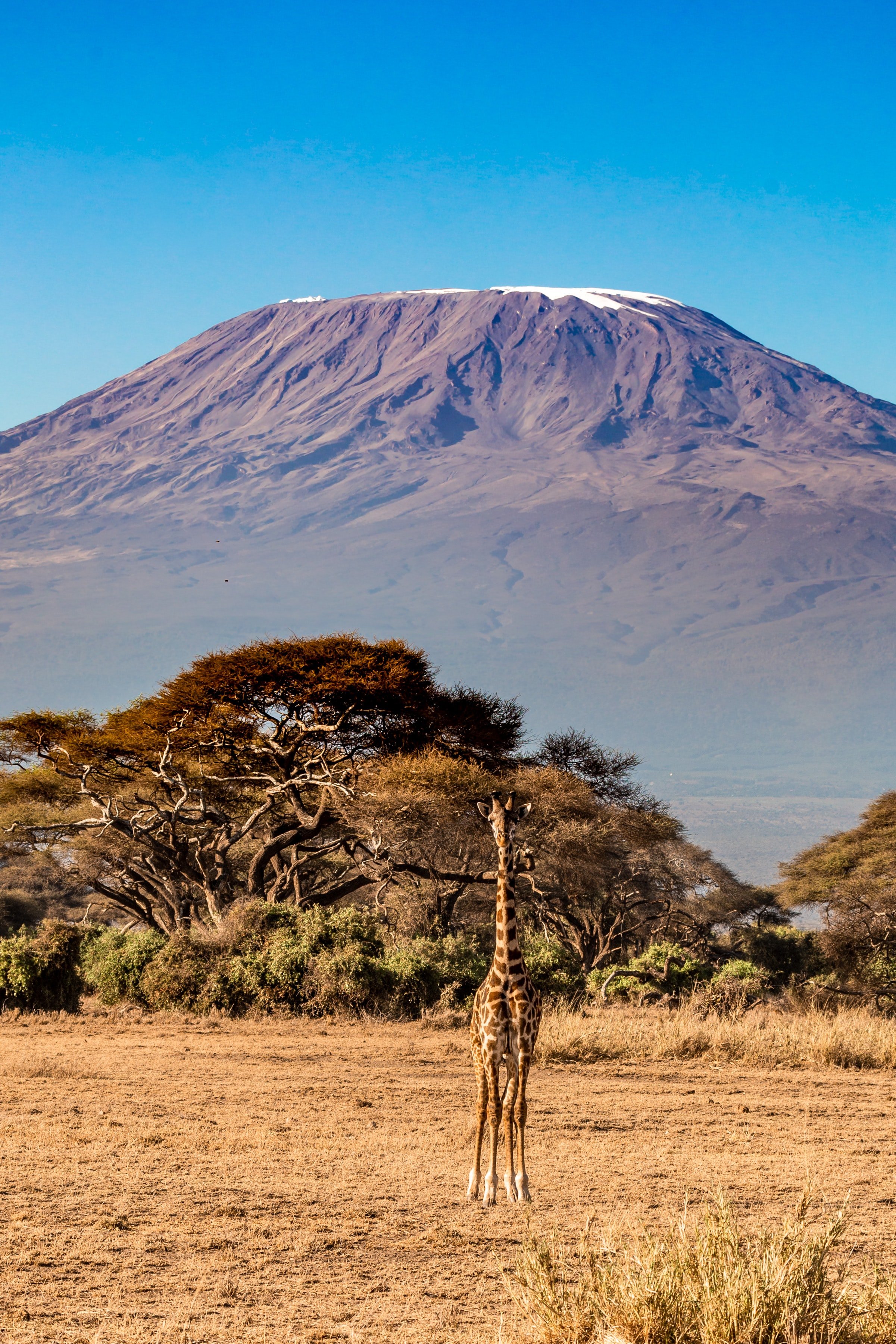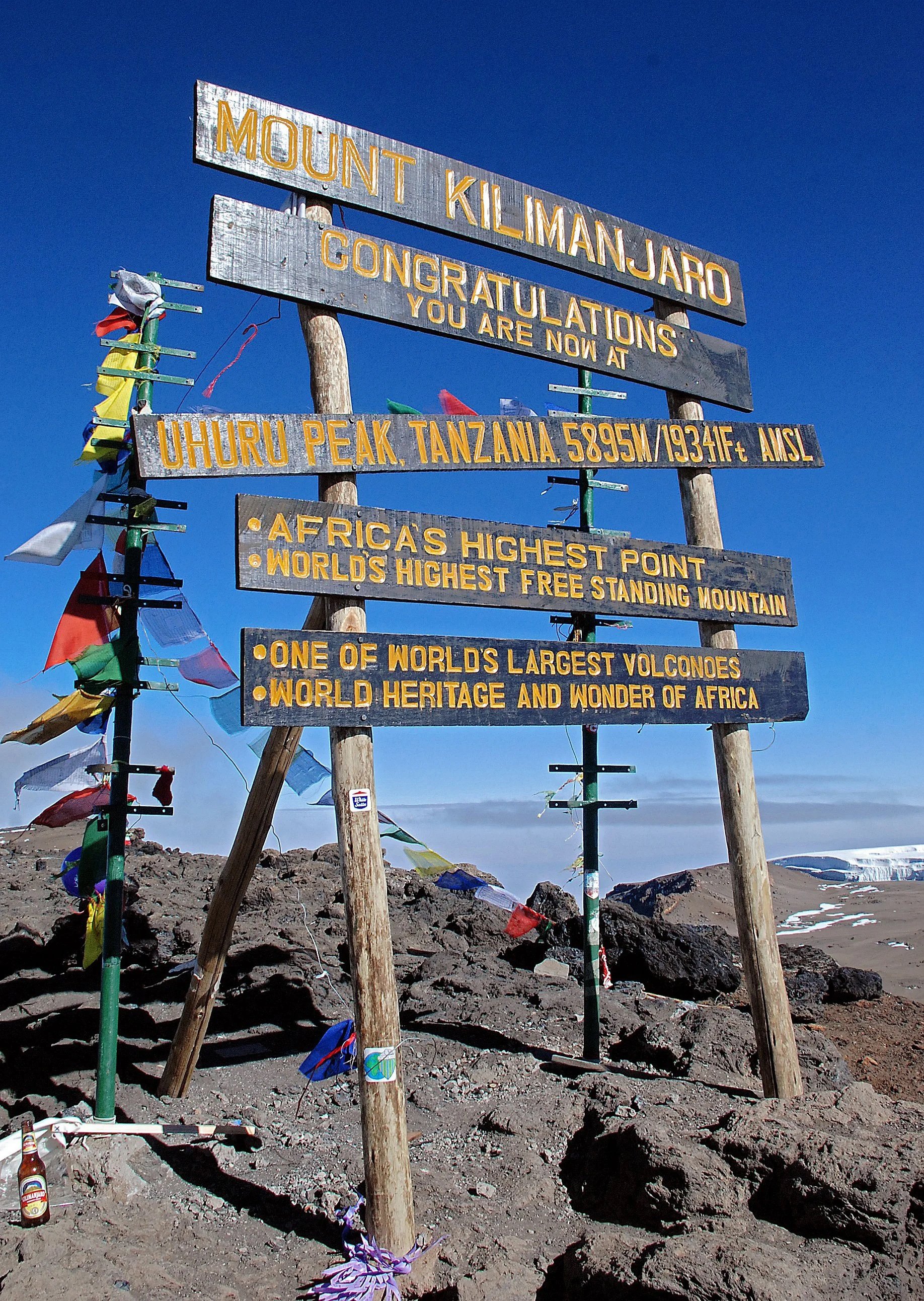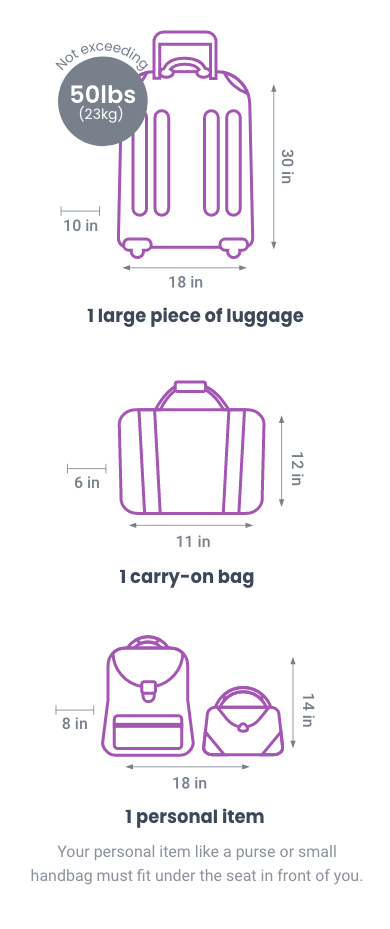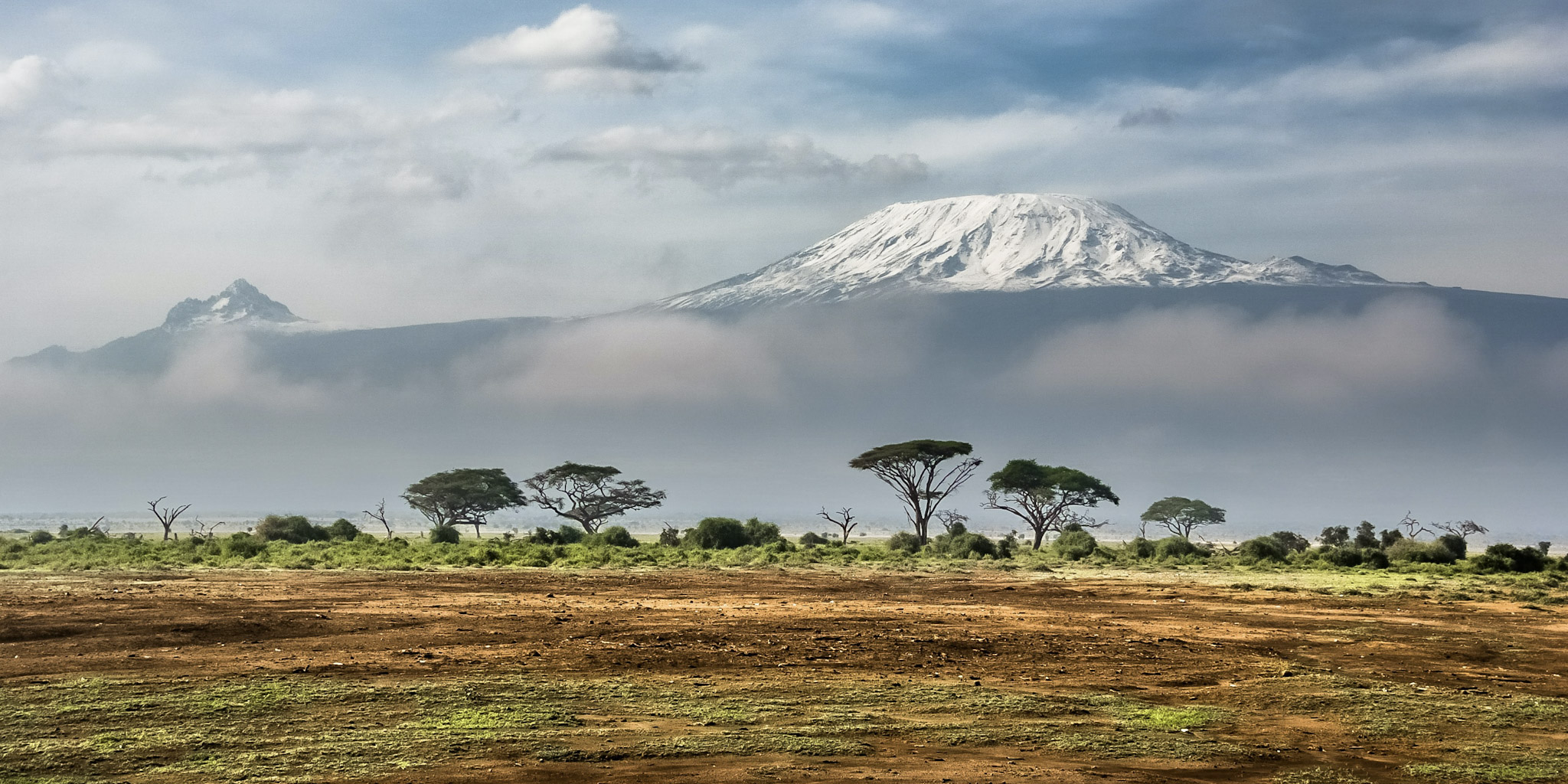About Mount Kilimanjaro
Overview
Standing at 19,431 feet at its summit, Mount Kilimanjaro is the highest mountain in Africa and the highest single free-standing mountain in the world. The 7-day Machame route that you will take to the top crosses multiple ecosystems, unparalleled views and all the way to the “Rooftop of Africa."
Country: Tanzania
Population: 59.7 million (2020 est.)
Currency: Tanzanian Shilling (but the US dollar is widely accepted)
Time Zone: East Africa Time (GMT+3)
Outlet: Types D/G
Emergency Number: 112


Packing List
Speak the Language
Language: Swahili is the official language of Tanzania
- Hello - Hello
- Goodbye - Kwaheri
- Thank you very much - Asante (sana)
- Do you speak English? - Unaongea kiingereza?
- I don't understand - Sielewi
- How are you? - Habari Yako?
- I'm fine, thank you - Niko sawa, asante
- What is your name? - Jina lako nani?
- My name is ____ - Jina langu ni ____
- Sorry - Samahani
- Where is the bathroom? - Bafuni iko wapi?
Google Translate: Download the Google Translate app or click here

Weather
MOSHI WEATHERTraining Ideas
We highly recommend everyone begin training at least two months before departure.
Important note: Always consult with your physician before commencing with a workout program.
If you've never hiked before, you should start with shorter time intervals, a slower pace, and no weight (in your day pack) and then gradually increase all of the above as your fitness level improves. Remember that on Mount Kilimanjaro, you will walk slowly for prolonged periods, and carry probably no more than 20 lbs in your day pack. Therefore, in your training, it is better to increase the time interval/distance and keep a slow pace than to shorten the time interval/distance and increase the pace.
It is imperative that during Kilimanjaro training, you wear the boots that you intend to climb with so that they are sufficiently broken-in (to prevent blisters). Additionally, you should wear the day pack you intend to carry so your shoulders/back/hips get used to the points of contact and weight (to minimize chafing and soreness).
If you have access to hiking trails and a schedule to accommodate it begin walking and hiking in hilly/steep terrain. Nothing prepares you for a backpacking trip better than the activity itself!
The following is how a moderate program may look:
- First week of training
- Tuesday: one-hour hike with a daypack
- Thursday: one-hour hike with a daypack
- Sunday: 2-hour hike with a daypack
- Two weeks before the trip
- Monday: 3.5-hour hike with a 20-pound pack
- Wednesday: 2-hour hike with a 20- pound daypack
- Thursday: 3.5-hour hike with a 20-pound pack
- Sunday: 7-hour hike with the weight you’ll have on your trip
There are many other activities that are easily incorporated into your daily life to build your overall fitness. Cross-training is also important to strengthen opposing muscle groups and it helps to avoid over-use injuries.
Supplemental training ideas include:
- Climb the stairs at your office, house, park, or neighborhood with a backpack. Stair climbing is a fantastic way to simulate backpacking in hilly or steep terrain.
- Bike to work or when running errands. Bike around town or on country roads outside of your town/city. Cycling is a great way to build endurance and strength in your legs.
- Gym activities include step aerobics, treadmill, bicycling, or elliptical trainers to name a few. A modest weight training program focusing on the muscles that support the ankles, knees, back, and shoulders is also beneficial.
- Swimming is a great way to build endurance and cardiovascular fitness and is easy on the joints.
- Walk to work instead of driving. Run your errands by walking and carrying your groceries home in a backpack.
- Yoga and/or Pilates classes can build strength throughout your body while also improving your flexibility.
- Intramural sports.
- Jogging is another option, however, if you are not a regular runner it can easily lead to injuries that backpacking may then exacerbate. Undertake a jogging routine with care.
Tipping
Tipping Suggestions: It is customary to tip your mountain crew upon completion of your trip. The decision on how much to tip should not be determined based upon whether or not you reached the summit, but by how well the guides, cooks, and porters served you while you were on the mountain. The standard tipping amounts are as follows:
| Lead Guide | USD $20-25 per person/per day | |
| Assistant Guide | USD $15-20 per person/per day | |
| Porter | USD $5-7 per person/per day | |
| Per Cook | USD $8-10 per person/per Day |
It can be confusing to calculate the total tipping amount as there will be multiple guides, porters and cooks, with the total number varying based on your group size. Therefore it is recommended to tip between $300-$350 USD for the entire climb. It is also recommended to tip in smaller USD bills.
FAQ
Where can I find information on travel safety? Check out the US Department of State's website for the most up-to-date information on safety while traveling.
Take care and be vigilant around personal property. On the mountain itself, be sure to keep valuables and cash for tips on your own person at all times, in your daypack or a hidden money belt.
Is the water safe to drink? Tap water should be avoided by travelers. You should also avoid brushing your teeth with tap water when possible. For drinking water, make sure to drink treated water which can be found at all lodging accommodations.
Do I need a Visa? Tanzania offers advance eVisas and Visas on arrival in Kilimanjaro and Dar es Salaam for many nationalities. Please refer to this website for up-to-date, accurate information and pricing.
When applying for the online eVisa in advance, or the Visa on Arrival at the airport the following information will be required.
Host:
Full Name:
Mobile number:
Email:
Company name/Organization Registration Number:
Relationship:
Physical address:
TrovaTrip will provide the above information 50 days prior to your departure date.
N.B. US Citizens must purchase a multi-entry visa for $100. In addition, if traveling from a country where yellow fever is present (such as Kenya) a valid yellow fever vaccination certificate is required for entry. Make sure your passport is valid for at least six months after you return home and has two or more blank pages. Otherwise, some countries may not let you enter.
What about vaccines? For Vaccination information, click here.
How much should I pack? As we will be using shared transfers and spaces throughout our tour we recommend all travelers pack as lightly as possible. Please take a look at our luggage restrictions below.
TRAVEL INSURANCE REQUIRED: Due to the trek’s high elevations, travel insurance covering high-altitude treks is required to be purchased before departure. TrovaTrip recommends World Nomad’s Standard Policy which covers treks up to 19,685 feet (6,000 meters): worldnomads.com.
Plastic: Plastic bags are banned in Tanzania and this regulation is strictly enforced. Please refrain from packing plastic bags in your luggage. Transparent "zip-lock" plastic bags that some airlines require passengers to use for keeping liquids, cosmetics, toiletries etc separately in hand luggage are permitted. Hydrapacks, water bladders, and other reusable plastic water bottles are permitted.
What about Wifi? There are cell towers on Mt Kilimanjaro, and if you purchase a sim card in town or pay for roaming, you should be able to send text messages or make phone calls while trekking.
Luggage Restrictions
.jpg)


